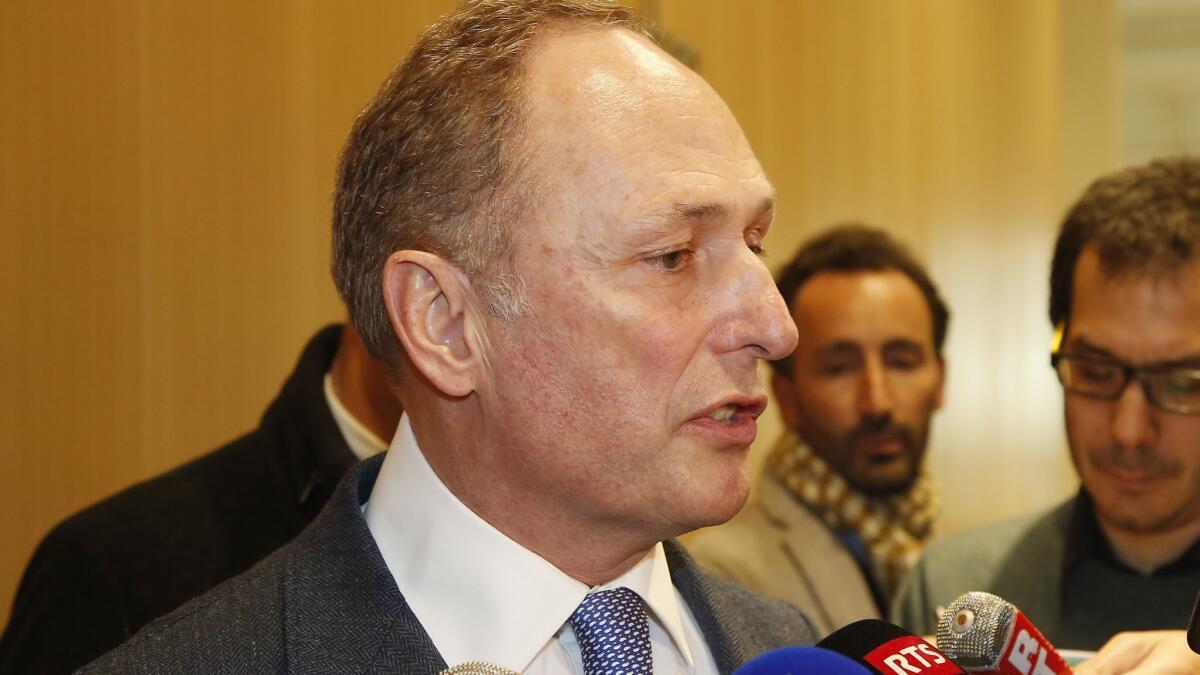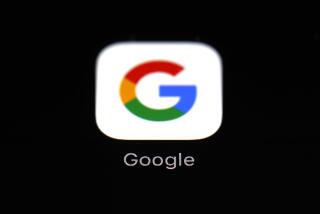UBS ordered to pay record $5.1-billion fine for helping French clients hide assets

UBS Group AG was ordered to pay more than $5.1 billion by a Paris court that found the bank guilty of helping wealthy French clients stash undeclared funds in Swiss accounts.
The criminal court ruled Wednesday that UBS illegally laundered funds by providing French customers with banking services to hide assets from tax authorities. The judges fined UBS $4.2 billion and added an additional $900 million in compensation to the French government.
“The criminal wrongdoings were of an exceptionally serious nature,” said Presiding Judge Christine Mee, who openly clashed with bank officials during a six-week trial. “These acts were committed behind the veil of opacity.”
For eight years, UBS has been dealing with the French probe — and bad press. Ahead of last year’s trial, the lender was accused in the indictment of laundering customers’ undeclared funds, and dispatching Swiss bankers across the border to seek out new clients even though they lacked the paperwork to offer such services in France.
The size of the fine — the largest ever in France and likely one of the biggest in Europe — was likely a surprise to UBS, which had only set aside $640 million for litigation and other regulatory matters at its wealth management unit.
Analysts at Credit Suisse Group AG said the fine was four to five times larger than what the market expected. Mee’s ruling, however, was largely in line with the fine sought by prosecutors and the damages the government requested.
UBS said it would appeal the ruling, which delays the need to make any payments until there is a final decision from higher courts.
“The bank has consistently contested any criminal wrongdoing in this case throughout the investigation and during the trial,” UBS said in a statement. “The charges of laundering the proceeds of tax fraud are without merit, as the predicate offence of an original tax fraud of French tax payers was not proven.”
The Zurich-based bank’s shares were down 3.3% in midday trading on the New York Stock Exchange. .
The French unit of UBS was also found guilty, as well as five former bankers who were defendants in the case. A sixth banker, Raoul Weil, was cleared by the court.
“The concealment of assets and the unpaid taxes caused financial damages of an exceptional nature given the longevity and size of the fraud,” Mee said.
The UBS case is part of a French crackdown on tax fraud operated through Switzerland that’s seen the conviction of a former minister and a $340-million settlement with HSBC Holdings Plc — the largest criminal fine in France until Wednesday.
For the first three weeks of the trial, all seemed to be going to plan for UBS. Testimony was consistent and in favor of the bank, with few biting questions from the judge or prosecutors. Then, mid-trial, Mee started telling defendants she didn’t buy their explanations and her remarks became sarcastic. The judge cut off a UBS executive for lecturing her and even yelled at UBS’ main counsel for squabbling with a plaintiff lawyer during a defendant’s testimony.
The UBS investigation began with a whistle-blower report and twice the bank entered settlement discussions. The first attempt broke down in 2014 after UBS balked at entering a guilty plea. The second set of talks collapsed over how much the bank should pay, with the case ending up in court instead.
Though it’s no secret that thousands of French citizens dodged taxes by placing money in offshore Swiss accounts, the court was being asked to rule on whether there is clear evidence that shows UBS laundered such fraudulent funds between 2004 and 2012. In France, helping clients to conceal undeclared assets is considered money laundering.
Sebag writes for Bloomberg
More to Read
Inside the business of entertainment
The Wide Shot brings you news, analysis and insights on everything from streaming wars to production — and what it all means for the future.
You may occasionally receive promotional content from the Los Angeles Times.










